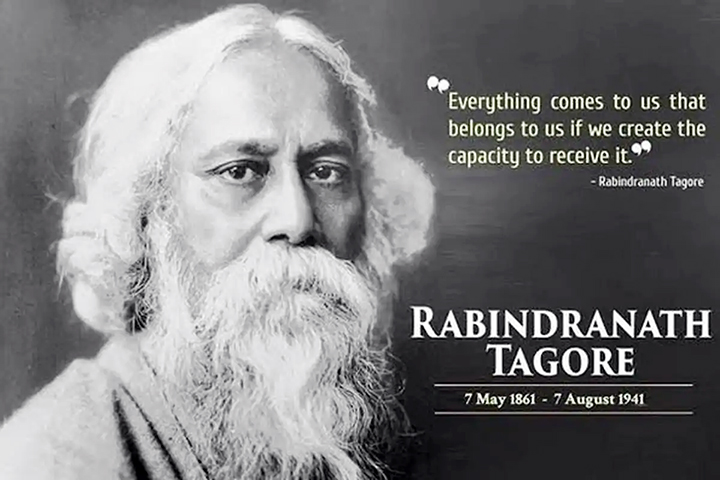Important Facts For Prelims
Rabindranath Tagore
- 10 May 2021
- 3 min read
Why in News
The Prime Minister paid tribute to Gurudev Rabindranath Tagore on 160th Jayanti on 7th May, 2021.
Key Points
- Birth:
- He was born in Calcutta on 7th May 1861.
- About:
- He was also referred to as ‘Gurudev’, ‘Kabiguru’, and ‘Biswakabi’
- He is regarded as the outstanding creative artist of modern India and hailed by W.B Yeats, Rabindranath Tagore was a Bengali poet, novelist, and painter, who was highly influential in introducing Indian culture to the west.
- He was an exceptional literary figure and a renowned polymath who singlehandedly reshaped the region's literature and music.
- He was a good friend of Mahatma Gandhi and is said to have given him the title of Mahatma.
- He had always stressed that unity in diversity is the only possible way for India’s national integration.
- He had spoken at the World Parliament for Religions in the years 1929 and 1937.
- Contributions:
- He is said to have composed over 2000 songs and his songs and music are called ‘Rabindra Sangeet’ with its own distinct lyrical and fluid style.
- He is responsible for modernising Bengali prose and poetry. His notable works include Gitanjali, Ghare-Baire, Gora, Manasi, Balaka, Sonar Tori, He is also remembered for his song ‘Ekla Chalo Re’.
- He published his first poems aged 16 under the pen-name ‘Bhanusimha’.
- He not only gave the national anthems for two countries, India and Bangladesh, but also inspired a Ceylonese student of his, to pen and compose the national anthem of Sri Lanka.
- Besides all his literary achievements he was also a philosopher and educationist who in 1921 established the Vishwa-Bharati University, a university that challenged conventional education.
- Awards:
- In 1913 he was awarded the Nobel Prize in Literature for his work on Gitanjali.
- He was the first non-European to receive the Nobel Prize.
- In 1915 he was awarded knighthood by the British King George V. In 1919, following the Jallianwalla Bagh massacre he renounced his Knighthood.
- In 1913 he was awarded the Nobel Prize in Literature for his work on Gitanjali.
- Death:
- He died on 7th August 1941 in Calcutta.






-min.jpg)